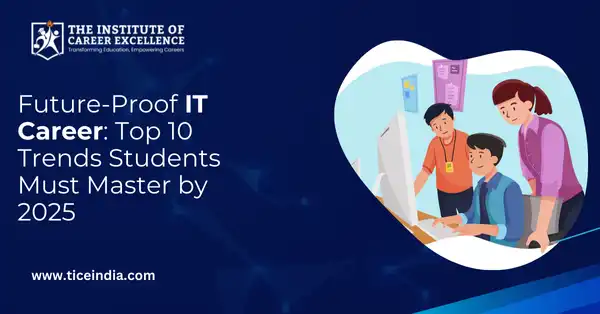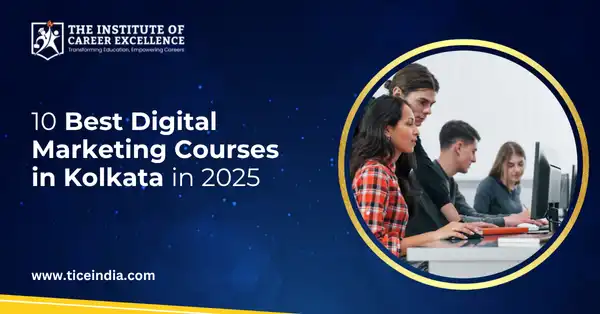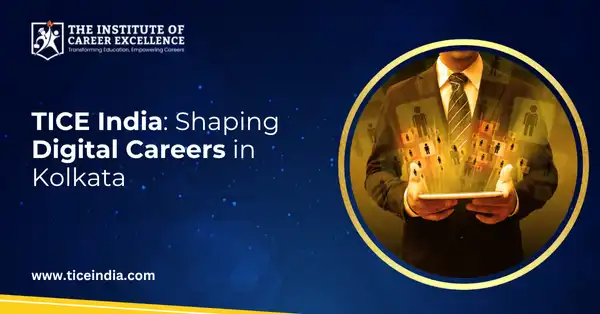
Posted On: May 22, 2025
Future-Proof IT Career: Top 10 Trends Students Must Master by 2025
The IT world evolves fast. What seems innovative today might be ordinary tomorrow, and something unknown could soon become a major breakthrough. As a student preparing to enter this fast-paced field, keeping up isn't optional—it’s essential. You’re not just aiming to find a job; you’re working to build a career that can hold up to changing technology and time. This is why it's important to future-proof your skills.
This isn’t just another list. This article serves as your guide. It will highlight the top 10 IT trends reshaping the tech world. You’ll find out which skills you need to learn to succeed in 2025 and beyond.
What Does Future-Proofing Your IT Career Mean?
Picture this: you wouldn't design a house without thinking about possible future storms. In the same way, locking in a stable IT career isn't just about chasing the most popular skill of the moment. To secure your future, you need to understand key industry trends, stay flexible, keep learning new things, and predict where technology is moving next. Future-proofing means building skills that stay useful even when specific tools or technologies evolve. It also requires knowing how big trends might shape the jobs you'll take on.
Ready to dig into this? Let’s explore what the future holds together.
The Top 10 IT Industry Trends Students Must Learn Before 2025
1. Artificial Intelligence (AI) and Machine Learning (ML)
AI no longer belongs to the realm of science fiction. It’s now a part of everyday life, from unlocking phones with a face scan to getting tailored movie or song suggestions. AI and ML focus on building systems that learn and decide on their own.
- Why students should care: Generative AI can create content, and businesses use predictive analytics to spot trends. Almost every industry is seeing AI play a bigger role, leading to a huge demand for trained experts. Knowing AI today is as essential as understanding the basics of the internet once was.
- Skills to learn: programming in Python or R using frameworks like TensorFlow and PyTorch, mastering data modeling, and grasping how various algorithms work.
- Career options: AI Engineer, Machine Learning Engineer, Data Scientist, and even roles like AI Ethicist.
2. Cybersecurity and Information Security
Data breaches make the news almost every day. As our lives rely more on digital systems, keeping private information safe becomes critical. Cybersecurity experts serve as protectors in the online world.
- Why students should care: The risks in online security are always changing, and businesses everywhere need skilled people to defend their systems. There are more jobs in cybersecurity than there are skilled professionals to fill them.
- Important skills to learn: basics of protecting networks and ethical hacking techniques How to handle security incidents, manage risks, and know compliance rules.
- Job options: cybersecurity analyst, security engineer, incident responder, and penetration tester.
3. Cloud Computing and Cloud-Native Technologies
Do you remember when everything had to be saved on a single computer? Now, businesses rely on the cloud. This means they use huge networks of servers located elsewhere. Companies like AWS, Azure, and Google Cloud Platform, often called GCP, provide the backbone for how digital operations work today. Tools like Docker and Kubernetes take things further by making apps work better in these cloud setups.
- Why students need this knowledge: Companies won’t go back to old systems, so learning to create, launch, and handle cloud-based applications is a must-have skill.
- What to learn: Earning cloud certifications, such as AWS Certified Cloud Practitioner, can help. Also, focus on serverless computing, building microservices, and mastering DevOps skills.
- Where it leads: You can work as a cloud engineer, cloud architect, DevOps engineer, or even a site reliability engineer.
4. Data Science and Big Data Analytics
People say data is like oil. But its value depends on refining it. Data science focuses on gaining useful insights, recognizing patterns, and finding valuable knowledge from huge sets of data.
- Why students should learn this: Companies in every industry depend on data to make smart decisions, stay competitive, and introduce new ideas. Understanding and working with data is a useful skill to have.
- Key skills you’ll need: Learning SQL, Python, or R helps to analyze data. Knowing statistics, using tools like Tableau and Power BI to show results, and understanding frameworks like Hadoop and Spark are important.
- Career options: Jobs include data analyst, business intelligence developer, or data scientist.
5. DevOps and Automation
DevOps focuses on removing barriers between software developers (Dev) and IT operations (Ops) teams. It represents a work culture with specific practices and tools aimed at making software delivery faster and more reliable.
- Why students need this: Businesses want to work faster and release better software. DevOps skills are in demand to help teams work together better and move quicker.
- Key skills to learn: Learn to build Continuous Integration and Continuous Deployment (CI/CD) pipelines. Get familiar with Git for version control. Explore tools like Jenkins, Docker, and Kubernetes. Pick up scripting languages like Python or Bash.
- Career options: You can become a DevOps Engineer, Automation Engineer, or Release Engineer.
6. Full-Stack Development
A full-stack developer works like a craftsman who creates furniture on their own, handling everything from the design of how it looks on the outside (front-end) to the hidden framework holding it together (back-end). They understand both the parts users see on a website or app and the servers, databases, and APIs that keep them running .
- Why students should focus on this: Being versatile is a major advantage. Full-stack developers handle complete projects and adjust easily to various company sizes and needs.
- Key skills to learn: Learn HTML, CSS, and JavaScript, including frameworks like React, Angular, and Vue. Study back-end languages such as Node.js, Python with Django or Flask, and Java with Spring. Understand database systems like SQL and NoSQL.
- Possible career options: Jobs include full-stack developer, web developer, and software engineer.
7. Extended Reality (XR: AR/VR/MR) and Metaverse Applications
Do you remember Pokémon GO? That was an example of augmented reality, also known as AR. Virtual reality, or VR, lets you step into a digital environment using things like VR headsets. Mixed reality, or MR, takes bits of both and merges them. Together, they create XR, which is becoming the foundation for what many call the 'Metaverse.'
- Why students should explore XR: This tech field is still growing and offers opportunities far beyond just gaming. It could change areas like training, healthcare, and shopping. It's a chance to dive into a world of creativity and new ideas.
- Key skills you can learn: tools like Unity or Unreal Engine, creating 3D models, designing user interfaces and experiences in XR platforms, and coding with C# or C++.
- Possible careers: You could become an AR/VR developer, an XR designer, a game developer, or even a simulation engineer.
8. Blockchain Technology & Web3
Blockchain powers cryptocurrencies like Bitcoin with its secure and decentralized system, but its use cases extend far past digital money. Web3 represents a new internet phase that uses blockchain for decentralization.
- Why students should care: Blockchain has the power to change industries like finance, supply chains, and digital identities. Learning the basics behind it is essential.
- What to learn: Solidity to create smart contracts, cryptography, and the mechanics of decentralized networks.
- Job opportunities: blockchain developer, smart contract engineer, or crypto analyst.
9. Low-Code/No-Code Development
Not everyone has to learn tough coding techniques to build an app. With low-code and no-code platforms, people can use simple visual tools and drag-and-drop features to create apps fast. This makes the time needed to develop apps much shorter.
- Why it's important to students: This trend helps regular users become creators, often called 'citizen developers,’ and helps companies design quick prototypes. Knowing these platforms is valuable since they are great for tackling business challenges with less effort.
- Skills to develop: You should know how business logic works, get familiar with specific platforms like Mendix or Salesforce, and understand how to connect different systems.
- Career paths: Jobs can include low-code developer, business analyst focused on tech, or solution architect roles.
10. Green IT and Sustainable Tech
As technology grows, people are becoming more alert to how it affects the planet. Green IT works to create, use, and manage tech systems in ways that are kinder to the environment.
- Why students should care about it: Big companies and global organizations now care more about sustainability. They want workers who know how to cut energy use and reduce waste in IT systems.
- What to learn: Skills in saving energy, creating eco-friendly hardware, improving data center performance, and studying tech's carbon footprint.
- Job options: roles like Green IT Consultant, Tech-Focused Sustainability Analyst, or Data Center Efficiency Expert.
Ways Students Can Learn These Skills and Build a Strong Future
Understanding IT industry trends is the beginning. The real growth begins when you work on building these skills.
- Formal Education: Pick courses or degree programs designed to match these trends. Many colleges and institutes are changing their programs to teach these topics.
- Self-Learning & Online Resources: The internet is full of free learning options. Platforms like Coursera and edX offer MOOCs, and there are loads of tutorials and open-source projects to explore.
- Hands-on Experience: Gaining real-world experience is key. Join internships, create personal projects to build your portfolio, take part in hackathons, or contribute to open-source projects.
- Networking: Build connections with experts already working in these areas. Go to webinars, community events, or industry conferences. Their advice can teach you a lot.
- Learn Continuously: The IT field keeps changing all the time. People who stay successful are the ones who choose to keep learning and stay flexible throughout their careers.
If you are in Kolkata and want to learn in a structured way, look into IT courses in Kolkata. Places like The Institute of Career Excellence (TICE) provide focused training to help you gain the needed skills for these growing fields.
Step Into IT and Shape Your Tomorrow
The IT industry holds an exciting future with plenty of opportunities waiting for those who take action. Following these top 10 IT industry trends helps you gain more than just knowledge. You set yourself up with a career that's stable and fulfilling. Don’t wait around for these innovations to turn into everyday needs. Begin learning, creating, and adjusting right now. You’ll be glad you got started.
Tags
Latest Posts
-

Best Certification Courses After 12th for a Career in IT
-

What is Off-Page SEO Optimization? Complete Guide to Building Authority and Rankings
-

What is On-Page SEO? Techniques, Factors, Elements
-

10 Best SEO Keyword Research Tools in 2025 (Free & Paid)
-

All Types of Keywords in SEO With Examples (2025 Guide)
Similar Posts
-

Best Certification Courses After 12th for a Career in IT
-

10 Best Digital Marketing Courses in Kolkata for 2025
-

Digital Marketing vs MBA: Which Career Path Offers Better Growth in 2025?
-

How to Get Your First IT Job Without Experience in 2025
-

Why TICE India is Shaping the Future of Digital Careers: A Closer Look



